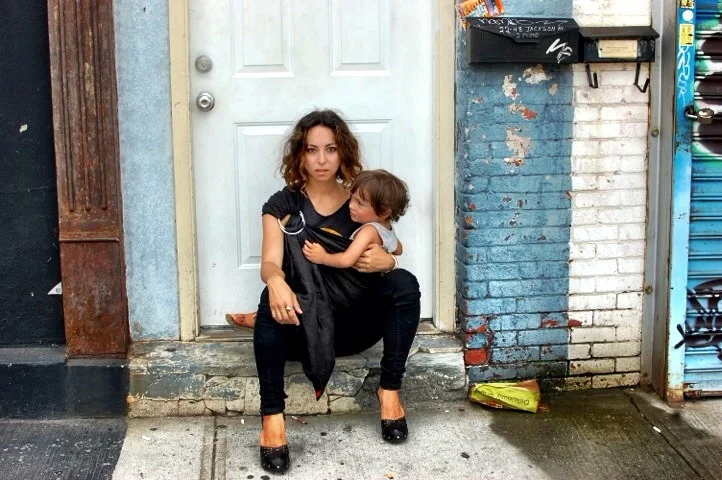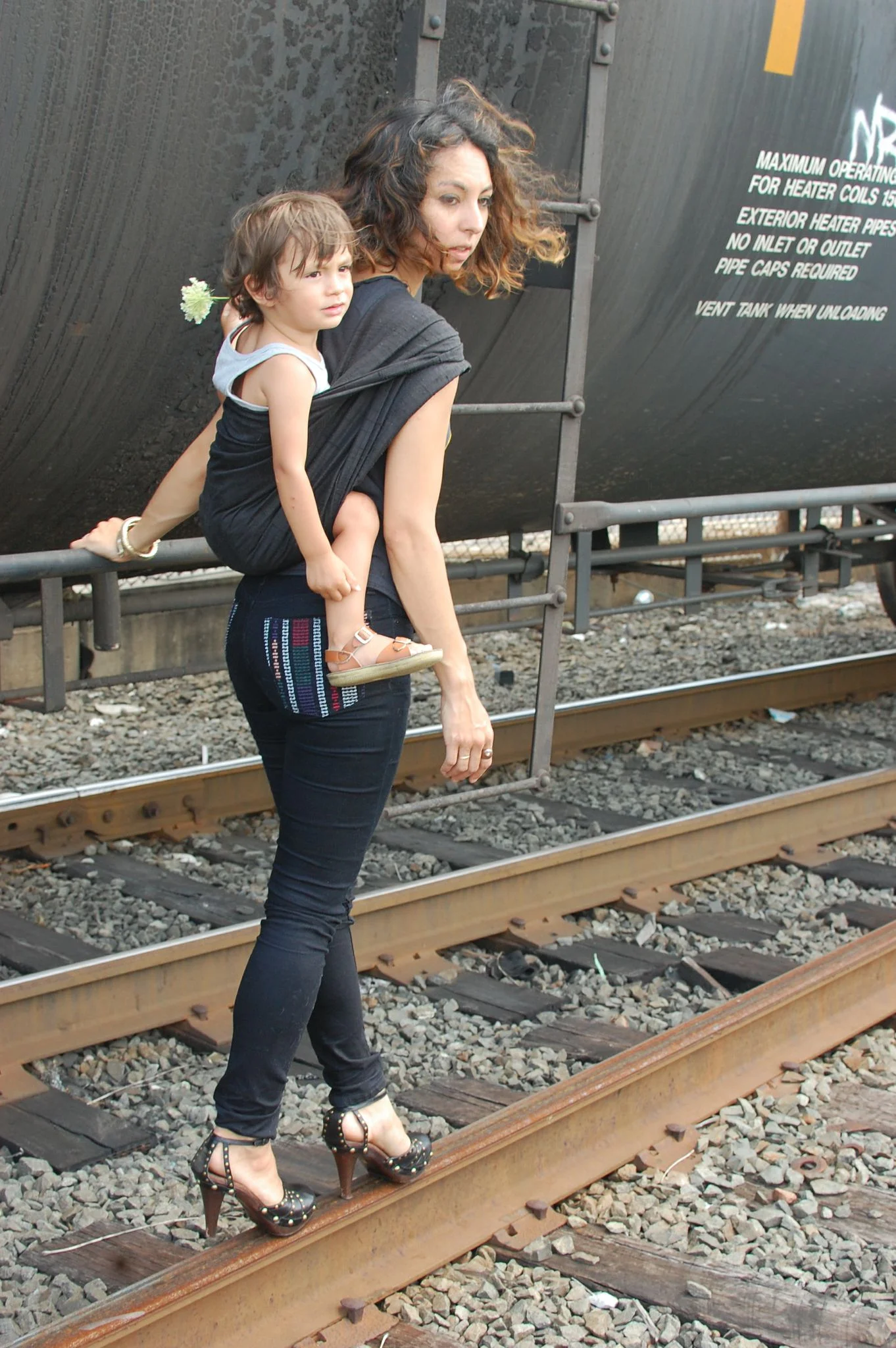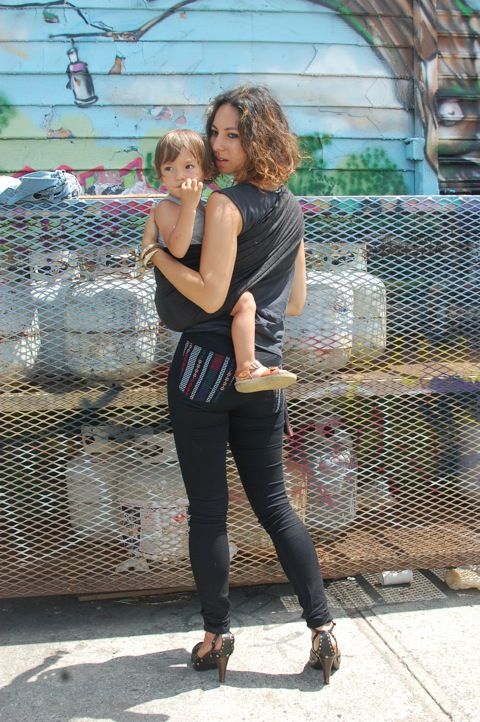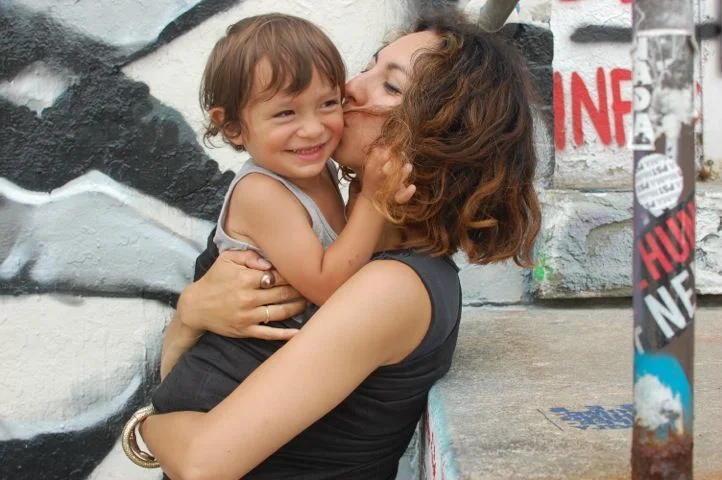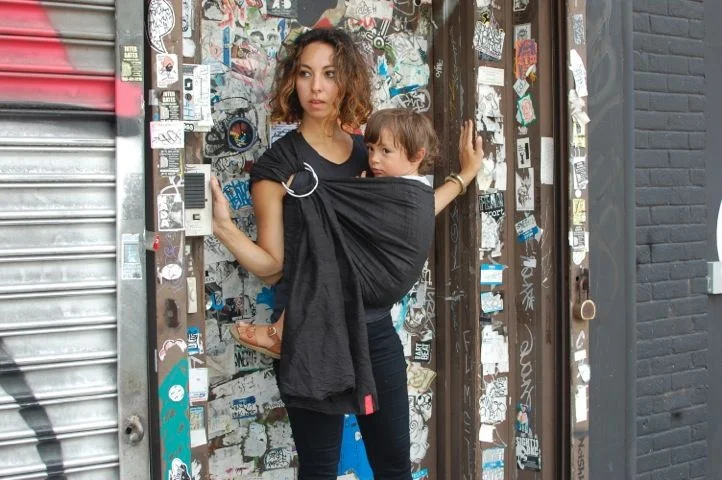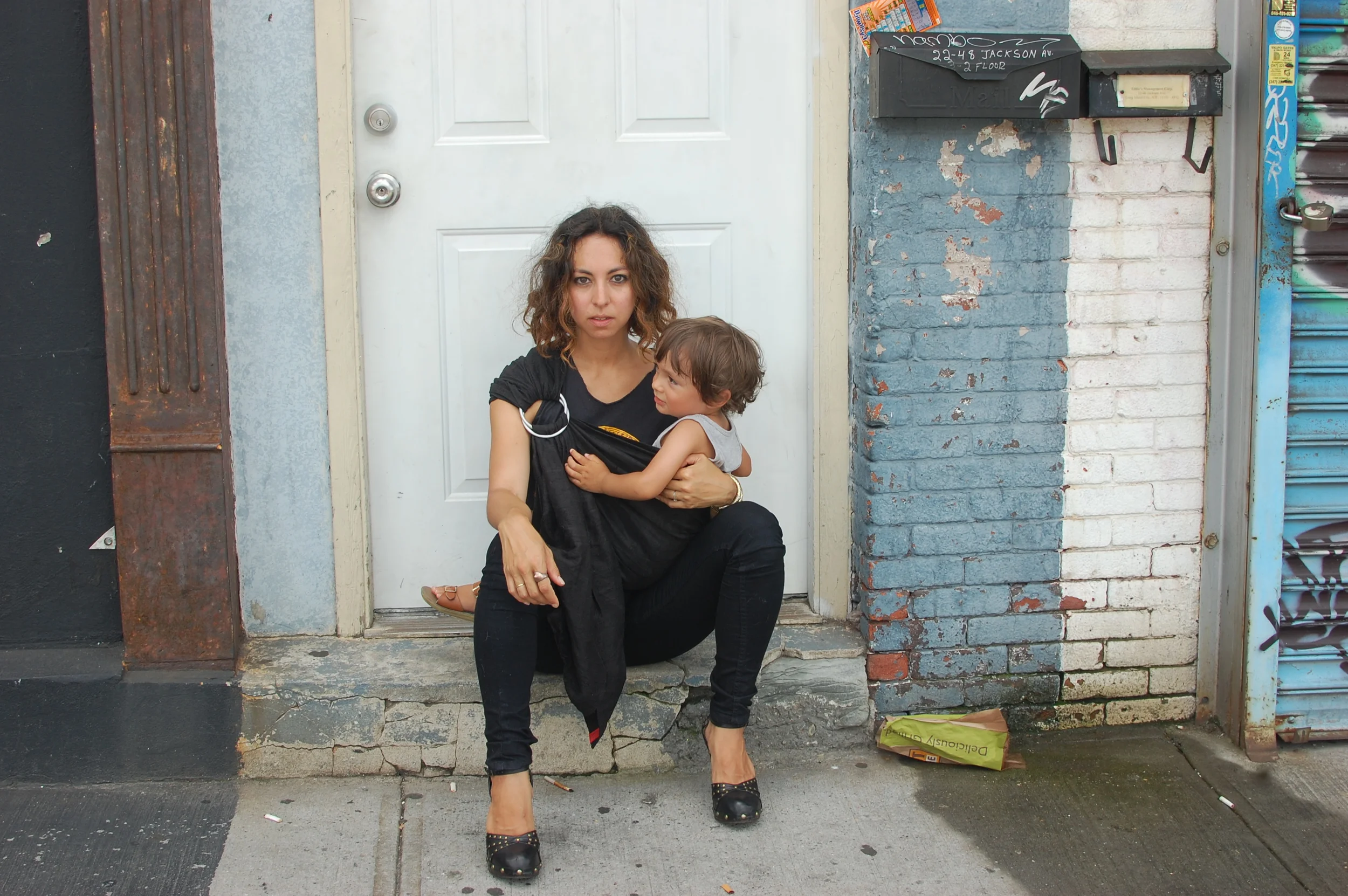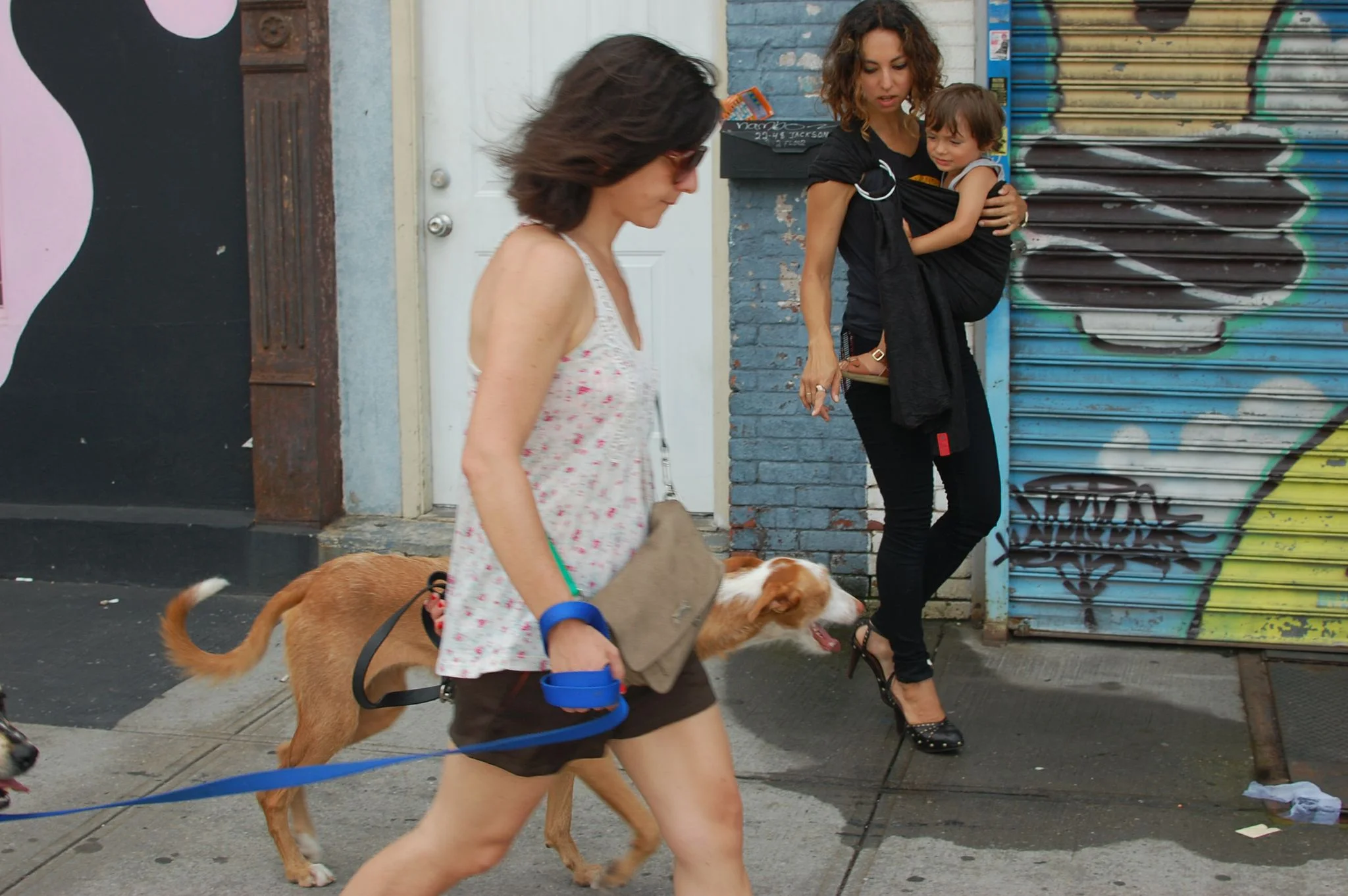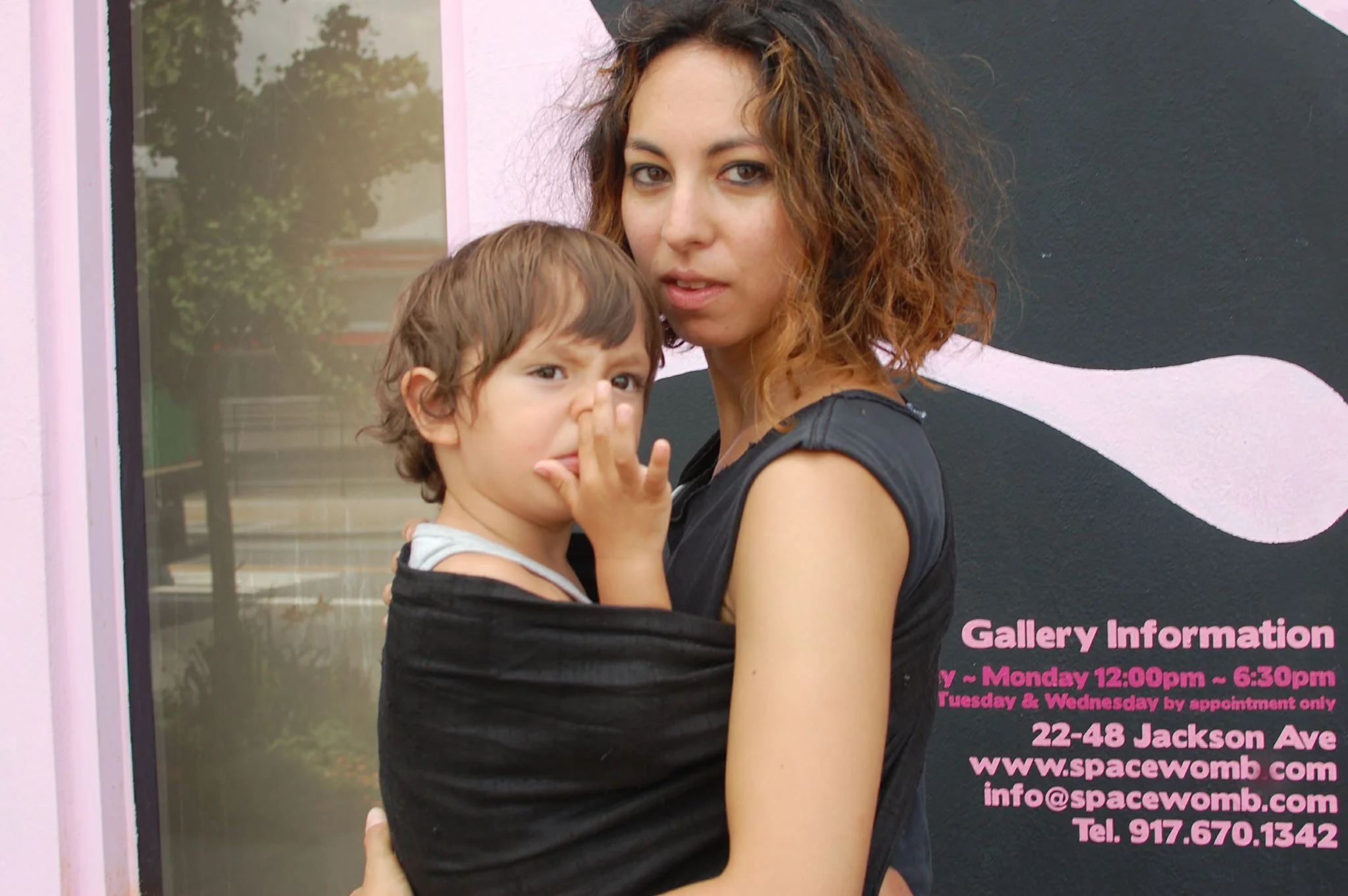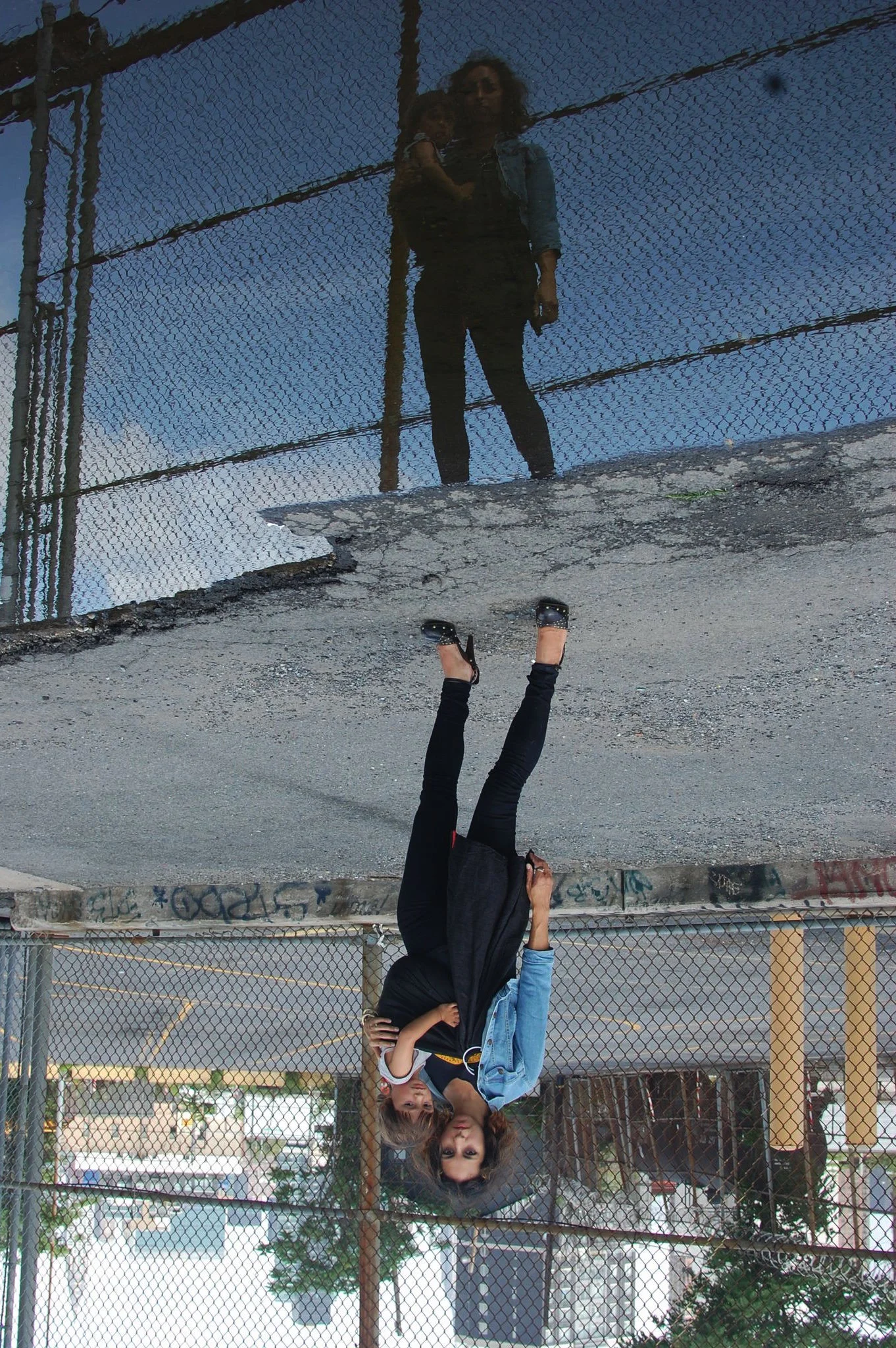VOICE
This past winter, I was so tired. I had just started to teach childbirth ed two nights a week instead of one, and I was all over the city every day with my children in the bitter cold, and I was awake a great deal every night with insomnia and/or nursing, and I was losing weight precipitously. One evening, after the children had gone to sleep, I lay on the sofa and wept while my husband looked on, bemused. I tried over and over again to explain to him what was wrong. I'm wrung out, I said, I'm finished. I'm putting out more than I'm taking in. My body is collapsing.
Finally my husband nodded. OK, he said, I believe you. I understand what you're saying, and I believe you. But - I could tell he was choosing his words carefully - the thing is, it's really hard for me to see you that way. Because to me, you seem really strong and vibrant right now. More than you've ever been.
This stopped me in my tracks. Strong and vibrant? For the first time, I considered the possibility that my husband - and others around me - had been failing to coddle me as I wished to be coddled not because of insensitivity, but because it didn't seem necessary. I considered the possibility that, to those observing me, I appeared to be animated, vital, glowing with life force - not at all the vitiated, grey ghost that I felt myself to be, existing only in reaction to a series of buffeting circumstances. It was an insane moment of insight, a crazy volta.
It's summer now, and I took my sons to visit a friend who was staying at her parents' house in rural Connecticut for a few days. While we were there, I caught a summer cold that consisted of being fine during the day, and then staying up most of the night with a gross, exhausting, phlegmy cough. On the second night of this disgustingness, desperate for remedy, I ventured downstairs a little before midnight to make myself a cup of hot tea. My friend's father was still awake, sitting at his desk watching a TV program on the computer. He showed me where the tea was, and we chatted briefly as the water boiled, and I made the tea and went back upstairs and eventually fell asleep.
There was a time when this would have been impossible for me. I've always been headstrong and prideful, and I've always enjoyed performing to an audience - those things must count as some sort of confidence to be sure. But to assess and clearly name my needs (HOT TEA, NOW) and to thrust these needs into others' consciousnesses - that's something that I have struggled mightily with. Not so long ago, if I had found myself sick in a strange house, I would have simply huddled miserably in the bedroom, unwilling to put myself forward, unwilling to risk the chance that someone might be downstairs, that I would have to disturb their existence, articulate my situation, accept their help.
There was also a time when I existed in constant, morbid fear of comedy and of error. What if I mispronounced something or said something stupid or spit when I talked or tripped and fell or did something that made me appear otherwise incorrect or foolish? These fears no longer dog me as intensely, not because I enjoy embarrassment any more, but because I no longer hold on to the fantasy that it's avoidable: I'm absolutely sure that I will make laughable mistakes, appear foolish, and feel humiliated on a regular basis - such is existence, such is humanity. I know that I will survive these inevitable cringeworthy moments, and that my image in others' minds will survive them as well.
Another way of saying all of these things is that I have come to believe in my own voice - that I have a voice in the first place, and that it is a distinct and powerful one. This is partly a natural result of growing older, having lived for more years with myself. But more than the simple passage of time, I think that becoming a mother is what set me on this particular path of discovery.
Many women find motherhood - new motherhood in particular - to be something like a maze - a bad dream - a curiously malignant force that breaks down, confounds, and silences a previously complete persona. But it has been the opposite for me. Far from silencing me, motherhood has drawn from me the strong, coherent voice of true adulthood. The demands of motherhood have called upon me to recognize and build myself, to clarify what I actually believe and why, to articulate and act upon my vision of myself, my children, and the world in which I wish to live. Motherhood have given me the vibrancy and resilience to believe in my vision and to believe that others might believe in it, too.
I am so much less afraid now than I ever was before. I am not afraid that I am wearing too much jewelry or makeup, or too little. I am not afraid of clothing that goes sheer in the sun. I am not afraid to skip deodorant. I am not afraid if you can see my pantyline, or my bra. I am not afraid to not wear a bra. I am not afraid that I don't look like myself. I am not afraid that you won't recognize me. I know you'll recognize me, because I am recognizable.
I'm a grownup now. I have control - or I don't have any control at all, but I kind of have control over that too. I can produce things - all kinds of things - that people can take seriously, that people can look at and say, This is not an accident. This is how it is because that's what she intended. I can read, write, and sing. I can play Cindy Sherman and lay before you this entire series of photographs of nothing - just me and my baby - and have you see that they are important and meaningful. I can communicate. I can make you hear my voice.
Becoming a mother - the challenge, the joy, the beauty, the stupidity - has allowed me to finally come online as a person. I'm live now, ME is live. I have given voice to my motherhood, certainly, but more than that, my motherhood has given voice to me.

